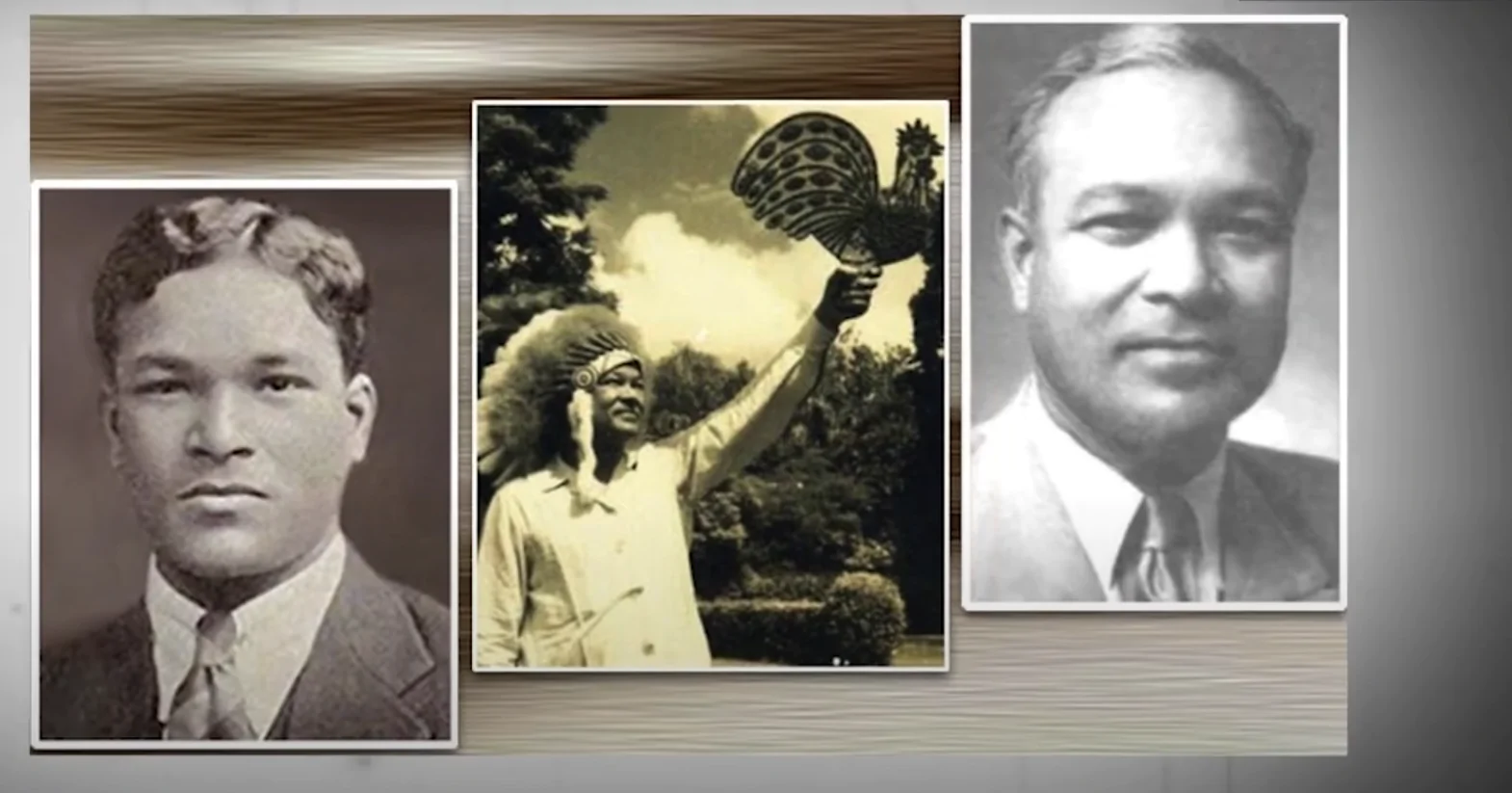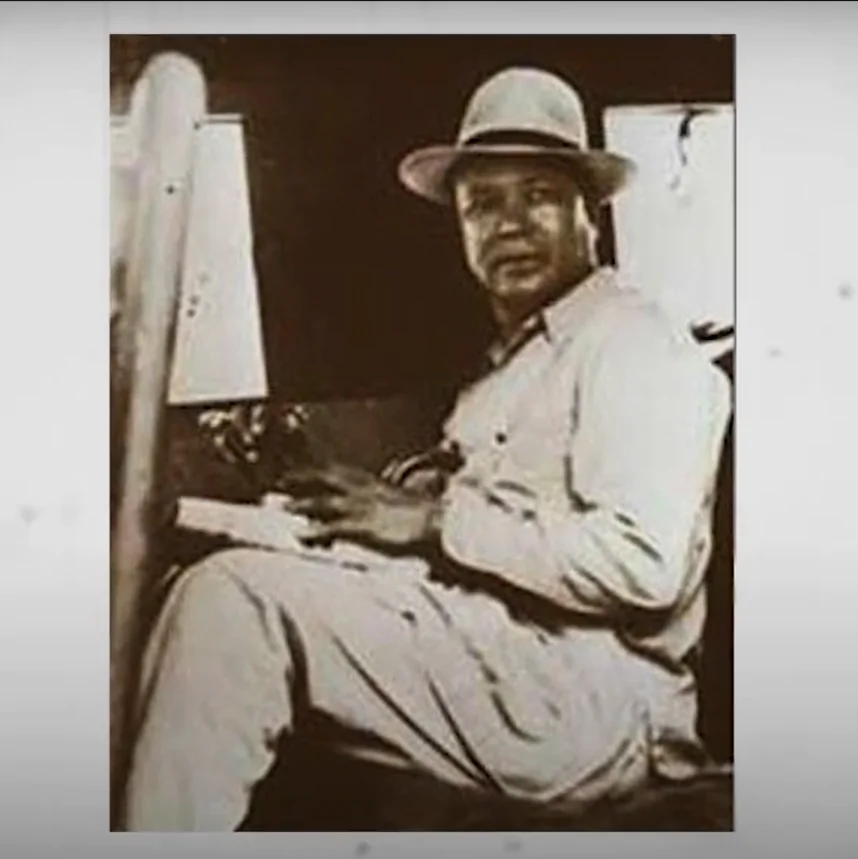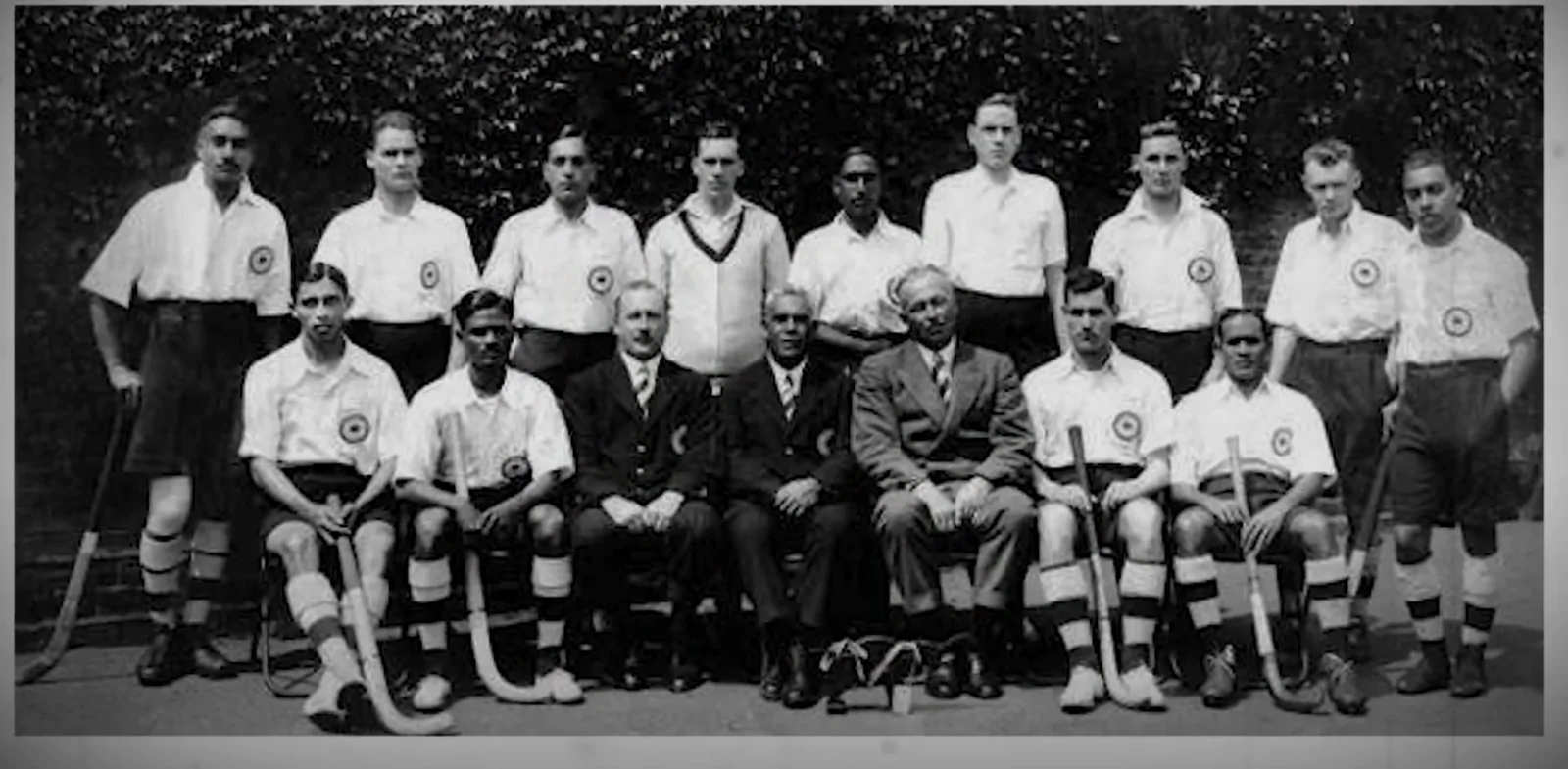The Legacy of Jaipal Singh Munda: Hockey, Activism, and Tribal Identity

Jaipal Singh Munda stands as a towering figure in Indian history, embodying the intersection of athletic prowess, political activism, and tribal advocacy. Born in 1903 in what is now Jharkhand, Munda’s life trajectory took him from the hockey fields of Oxford to the halls of India’s Constituent Assembly. His remarkable journey as an Adivasi leader, accomplished sportsman, and passionate voice for tribal rights left an indelible mark on the nation’s social and political landscape. This article explores Munda’s multifaceted legacy, examining how his experiences in sports, education, and politics shaped his tireless efforts to champion the cause of India’s indigenous peoples and foster a more inclusive vision of national identity.
Introducing Jaipal Singh Munda: The Hockey Star and Adivasi Leader
Jaipal Singh Munda’s journey to prominence began on the hockey field, where he showcased exceptional skill and leadership. In 1928, he achieved a remarkable feat by captaining the Indian field hockey team to Olympic gold at the Summer Olympics in Amsterdam. This victory not only brought glory to India but also established Munda as a national sports icon. His prowess in hockey laid the foundation for India’s future dominance in the sport and inspired generations of athletes from diverse backgrounds.
Beyond his athletic achievements, Munda emerged as a powerful voice for the Adivasi (indigenous) communities of India. Recognizing the marginalization and struggles faced by tribal populations, he dedicated himself to advocating for their rights and cultural preservation. Munda’s activism gained momentum, and in 1939, he assumed the role of President of the Adivasi Mahasabha, a significant platform for advancing tribal interests.
One of Munda’s most ambitious goals was the establishment of a separate homeland for Adivasi people. He believed that such a territory would safeguard tribal cultures, languages, and ways of life while providing greater autonomy and self-governance. This vision resonated with many Adivasis and became a rallying point for the movement. Though controversial, Munda’s advocacy brought national attention to the unique challenges and aspirations of India’s indigenous communities.
Jaipal Singh Munda’s legacy is a testament to the power of using one’s platform for social change. From the hockey field to the political arena, he championed the cause of India’s tribal populations with unwavering dedication, leaving an indelible mark on both sports history and the struggle for indigenous rights.
Munda’s Early Life and Hockey Career
Jaipal Singh Munda’s journey to becoming a national hero began in the halls of St. John’s College, Oxford University. As a brilliant student, Munda graduated with honors in economics, showcasing his intellectual prowess. However, it was on the hockey field where he truly made his mark. His exceptional skills on the college hockey team quickly became renowned throughout Oxford, catching the attention of both locals and sports enthusiasts alike.
Munda’s talent on the field catapulted him to the highest echelons of the sport. In 1928, he achieved what many athletes only dream of – captaining the Indian national hockey team at the Olympic Games. Under his leadership, India secured its first-ever Olympic gold medal in hockey, a momentous achievement that would set the stage for India’s future dominance in the sport. This victory not only brought glory to the nation but also solidified Munda’s place in Indian sports history.
Munda’s success in hockey and academics laid the foundation for his future endeavors. His experiences at Oxford and on the international stage shaped his worldview and instilled in him a deep sense of pride in his tribal identity. These formative years would later influence his transition into activism and politics, where he would champion the rights of India’s tribal communities. The discipline, leadership, and strategic thinking honed on the hockey field would serve him well in his future roles as an advocate for social change.
His Activism for Tribal Rights and Representation
Jaipal Singh Munda’s legacy extends far beyond his achievements in hockey. His tireless advocacy for tribal rights and representation left an indelible mark on Indian society and politics. Munda’s activism was rooted in his deep connection to his tribal heritage and his desire to uplift marginalized communities.
Munda used his platform as a prominent public figure to raise awareness about the challenges faced by India’s tribal populations. He consistently emphasized the importance of preserving tribal culture and languages, arguing that these were integral to the nation’s diverse fabric. His speeches and writings often highlighted the rich traditions and wisdom of tribal communities, helping to counter prevailing stereotypes and misconceptions.
Recognizing the power of political representation, Munda became actively involved in the Indian political landscape. He served as a member of the Constituent Assembly, where he passionately advocated for the rights and interests of tribal communities. His eloquent speeches in the assembly drew attention to the need for special provisions to protect and empower tribal populations.
One of Munda’s most significant contributions was his advocacy for the creation of a separate state for tribal communities. This vision eventually materialized in the form of Jharkhand, carved out of Bihar in 2000. Munda argued that such autonomy was crucial for the socio-economic development of tribal regions and the preservation of their unique cultural identities.
Throughout his life, Jaipal Singh Munda remained committed to bridging the gap between tribal communities and mainstream society. His activism paved the way for greater recognition of tribal rights and laid the foundation for future generations to continue the fight for equality and representation.
Munda’s Role in the Demand for Jharkhand State
Jaipal Singh Munda’s commitment to tribal rights extended beyond sports and into the realm of political activism. At the 1940 Ramgarh session of the Indian National Congress, Munda boldly advocated for a separate state to safeguard the interests of tribal communities. This marked a pivotal moment in the journey towards the creation of Jharkhand, as it brought national attention to the unique needs and aspirations of the region’s indigenous populations.
Munda’s advocacy laid the groundwork for what would become known as the Jharkhand movement. His impassioned speeches and tireless efforts to raise awareness about tribal issues inspired a generation of activists. The Jharkhand Mukti Morcha (JMM), a political party founded in 1972, drew inspiration from Munda’s vision and became the driving force behind the demand for statehood.
Though Jaipal Singh Munda did not live to see the fruition of his efforts, his legacy played a significant role in the eventual creation of Jharkhand State. The movement he helped initiate gained momentum over the decades, with the JMM and other tribal organizations continuing to push for autonomy. Their persistent advocacy, rooted in Munda’s early vision, finally led to the establishment of Jharkhand as a separate state in 2000.
Munda’s contribution to the Jharkhand movement exemplifies how sports figures can leverage their platform for social and political change. His dual identity as a hockey star and tribal rights activist allowed him to bring national and international attention to the cause of tribal autonomy, ultimately reshaping the political landscape of eastern India.
Founding the Adivasi Mahasabha Party

Jaipal Singh Munda’s commitment to tribal rights and empowerment led him to establish the Adivasi Mahasabha Party in 1938. This political organization aimed to represent the interests of India’s indigenous peoples, known as Adivasis, in the broader national discourse. Munda recognized the need for a unified platform to address the unique challenges faced by tribal communities and to advocate for their rights and cultural preservation.
Political Objectives and Ideology
The Adivasi Mahasabha Party’s primary objectives included:
- Protecting tribal land rights and resources
- Promoting education and economic development in tribal areas
- Preserving and celebrating indigenous cultures and traditions
- Advocating for greater political representation of Adivasis
Munda’s vision for the party was rooted in the belief that tribal communities deserved equal opportunities and respect within Indian society. He sought to challenge the marginalization and exploitation of Adivasis while promoting their integration into the national mainstream on their own terms.
Impact and Legacy
The formation of the Adivasi Mahasabha Party marked a significant milestone in the history of tribal activism in India. It provided a platform for Adivasi leaders to voice their concerns and aspirations at both regional and national levels. The party’s efforts contributed to raising awareness about tribal issues and influenced subsequent policies and legislation aimed at protecting indigenous rights.
Jaipal Singh Munda’s leadership of the Adivasi Mahasabha Party laid the groundwork for future tribal political movements and organizations. His legacy continues to inspire contemporary activists and politicians working towards the empowerment and well-being of India’s indigenous communities.
Munda’s Election to the Constituent Assembly
In 1946, Jaipal Singh Munda achieved a significant milestone in his political career when he was elected to the Constituent Assembly of India. This election marked a pivotal moment not only for Munda but also for the tribal communities he represented. As one of the few tribal leaders in the assembly, Munda’s presence ensured that the voices and concerns of India’s indigenous peoples would be heard during the crucial process of drafting the nation’s constitution.
Munda’s election to the Constituent Assembly provided him with a powerful platform to advocate for tribal rights and autonomy. He used his position to passionately argue for the protection of tribal lands, customs, and languages. Munda’s eloquent speeches and persuasive arguments helped shape the constitutional provisions that would later safeguard tribal interests, including the Fifth and Sixth Schedules of the Indian Constitution.
Throughout his tenure in the Constituent Assembly, Munda faced the challenging task of balancing the need for national unity with the preservation of tribal identity. He skillfully navigated these complex issues, emphasizing the importance of integrating tribal communities into the mainstream while simultaneously protecting their unique cultural heritage. Munda’s nuanced approach helped foster a more inclusive vision of Indian democracy, one that recognized and respected the diversity of its indigenous populations.
Jaipal Singh Munda’s election to the Constituent Assembly set a precedent for tribal political representation in India. His presence in this historic body paved the way for future generations of tribal leaders to participate in the nation’s democratic processes. Today, Munda’s legacy continues to inspire indigenous communities across India to engage in politics and advocate for their rights at the highest levels of government.
His Legacy and Impact on Tribal Identity Politics
Jaipal Singh Munda’s legacy extends far beyond his athletic achievements, solidifying his place as a pivotal figure in tribal identity politics. His tireless advocacy for the rights and recognition of India’s indigenous communities left an indelible mark on the nation’s socio-political landscape. As a member of the Constituent Assembly, Munda passionately championed the cause of tribal representation, ensuring that the voices of these marginalized groups were heard in the halls of power.
Munda’s efforts to empower tribal communities through education and political participation set a precedent for future generations. He consistently emphasized the importance of preserving tribal culture while simultaneously integrating into mainstream society. This balanced approach helped foster a sense of pride and identity among tribal youth, encouraging them to embrace their heritage while pursuing opportunities for advancement.
The impact of Munda’s work continues to resonate in contemporary tribal politics. His advocacy laid the groundwork for the formation of organizations and movements dedicated to protecting tribal rights and promoting their interests. The creation of separate states like Jharkhand, which Munda had long advocated for, can be seen as a direct result of his efforts to secure greater autonomy for tribal regions.
Moreover, Munda’s legacy has inspired a new generation of tribal leaders and activists who continue to fight for land rights, cultural preservation, and equitable development. His life serves as a powerful example of how individuals from marginalized communities can rise to positions of influence and affect meaningful change, paving the way for greater tribal representation in India’s political and social spheres.
Remembering Munda Through Sports and Social Reform
Jaipal Singh Munda’s legacy extends far beyond his athletic achievements, encompassing his roles as a prolific sports columnist and passionate advocate for indigenous rights. His regular columns in leading English newspapers not only showcased his deep understanding of hockey but also served as a platform to address broader social issues. Munda’s writing style, infused with his unique perspective as both an accomplished athlete and a tribal leader, captivated readers and brought attention to the often-overlooked contributions of indigenous people in Indian sports.
Munda’s experiences in education and sports were instrumental in forging his multifaceted legacy. His journey from a tribal village to Oxford University and then to the Olympic stage exemplified the transformative power of education and athletic pursuits. This unique combination of academic excellence and sporting prowess enabled Munda to bridge cultural divides and challenge prevailing stereotypes about tribal communities. His life story continues to inspire young indigenous athletes to pursue their dreams while staying connected to their roots.

The legacy of Jaipal Singh Munda continues to resonate with generations of Indians, particularly those from marginalized communities. His tireless efforts to highlight the importance of indigenous rights and representation in Indian society have paved the way for greater recognition and inclusion of tribal voices in national discourse. Today, numerous sports academies, scholarships and social initiatives bear his name, serving as living testaments to his enduring impact. These institutions not only nurture athletic talent but also promote education and cultural preservation among tribal youth, embodying Munda’s vision of empowerment through sports and knowledge.
Jaipal Singh Munda’s Lasting Influence on Indian Society
Jaipal Singh Munda’s legacy extends far beyond his accomplishments in hockey. As a passionate advocate for tribal rights, he left an indelible mark on Indian society. Munda’s efforts to bring attention to the plight of India’s indigenous communities helped shape the country’s approach to tribal welfare and representation.
His powerful speeches in the Constituent Assembly highlighted the need for greater recognition and protection of tribal rights. This advocacy led to the inclusion of special provisions for Scheduled Tribes in the Indian Constitution, ensuring their representation in governance and safeguarding their cultural identity.
Educational Empowerment
Recognizing the transformative power of education, Munda tirelessly worked to improve access to quality education for tribal communities. His efforts led to the establishment of several schools and educational institutions in tribal areas, paving the way for greater social mobility and empowerment.
The Jaipal Singh Munda Scholarship Scheme, introduced by the government of Jharkhand in his honor, continues to support tribal students in pursuing higher education, carrying forward his vision of educational upliftment.
Cultural Preservation and Pride
Munda’s influence extended to the realm of cultural preservation. He emphasized the importance of maintaining tribal languages, traditions, and customs while integrating into mainstream society. This approach fostered a sense of pride in tribal identity and helped preserve the rich cultural heritage of India’s indigenous communities.
His legacy continues to inspire movements for tribal rights and cultural preservation across India, ensuring that the unique contributions of tribal communities are recognized and celebrated in the nation’s diverse tapestry.
In conclusion, Jaipal Singh Munda’s multifaceted legacy continues to inspire and influence India today. His remarkable journey from tribal origins to Olympic hockey captain to political activist exemplifies the power of talent, education, and determination to overcome societal barriers. Munda’s tireless advocacy for tribal rights and autonomy laid crucial groundwork for indigenous empowerment movements that persist into the 21st century. While challenges remain, his vision of tribal communities as equal participants in India’s democracy has made significant strides. Jaipal Singh Munda’s life serves as a powerful reminder of sports’ ability to transcend boundaries and of one individual’s capacity to drive meaningful social change through principled leadership and unwavering commitment to justice.



Woah! I’m really enjoying the template/theme of this site. It’s simple, yet effective. A lot of times it’s very hard to get that “perfect balance” between usability and visual appeal. I must say you’ve done a fantastic job with this. Additionally, the blog loads super quick for me on Opera. Exceptional Blog!